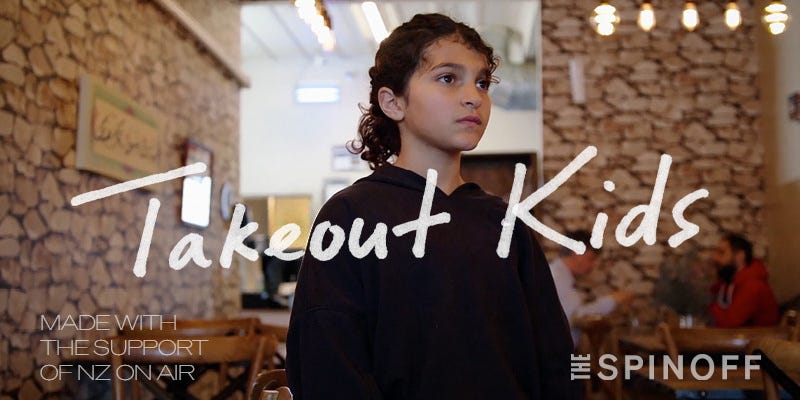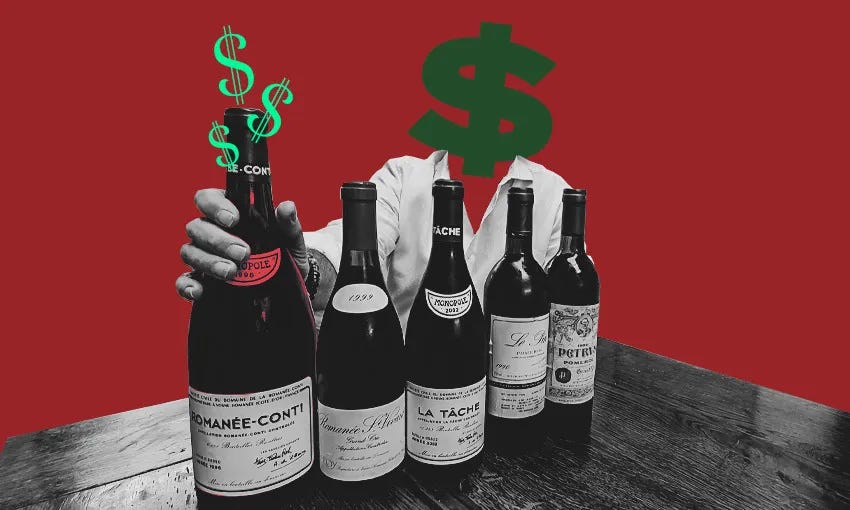The second phase of omicron
With nearly 1,000 daily cases the country's response is moving away from trying to control Covid-19 and focusing on protecting the vulnerable
Mōrena and welcome to The Bulletin for Tuesday, February 15, by Justin Giovannetti. Presented in partnership with Z Energy.
In today’s edition: Parliament protest ignores police; food prices soar; Air NZ future plan focuses on domestic travel; but first, moving to the next phase of the omicron plan.
Prime minister Jacinda Ardern and deputy prime minister Grant Robertson. (Hagen Hopkins/Getty Images)
The country is moving to the second phase of the omicron plan at midnight. While it might feel like elimination died some time ago, there have been a number of stations along the road to ending New Zealand’s long-serving strategy. It’s likely the last trace of elimination will be dropped tonight. While elimination was abandoned as the country’s explicit strategy last year, its DNA was still at the core of the response. Through delta and the first month of omicron, New Zealand was still focused on stamping out Covid-19 when possible—we nearly got there with delta. With about 2,000 omicron cases since Friday, that’s no longer possible. Phase two’s objective is decidedly not elimination, containment or suppression. It’s a speed bump*. Alice Neville has written up a useful explainer for The Spinoff about what phase two entails: more rapid tests, an end to contact tracing for most cases and shortened isolation periods.
A need to clarify*. “Phase three is not an inevitability,” director-general of health Ashley Bloomfield said yesterday. That’s an optimistic statement worth examining. The second phase of the three phase system is only designed to slow infections down and directs remaining resources to protecting the vulnerable. Even at that level, it can only deal with up to 5,000 daily cases. However, that could be enough to halt omicron in New Zealand. The country’s high booster coverage, good testing numbers and millions of sensible individual decisions have slowed omicron so far. According to the prime minister, had the country followed the same omicron trajectory as New South Wales, we would have recorded 17,000 cases yesterday instead of 981. Phase two could still be a mighty speed bump.
What can you do now? As RNZ reports, it’s time to develop a self-isolation plan. Figure out what buddy can drop off supplies if you get sick and make sure you have enough space at home to get better. If you need help, this is a good time to ask. Also, it’s time to get boosted if you haven’t already. The booster takes two weeks to reach peak performance, but as Bloomfield told me yesterday, some additional protection starts nearly immediately.
The next few weeks are likely to be unlike anything we’ve seen before. Here’s what Jacinda Ardern said at parliament yesterday: “We are embarking, for the first time in the two years since the start of the outbreak, into a period where New Zealanders will see more Covid in the community. It is a period of disruption and risk. It will be nothing like we've experienced to date, but our efforts with vaccination mean we have got to this place without the volume of serious illness and death that so many others experienced.”
The Spinoff’s Covid data tracker has the latest figures.
A message from editor Madeleine Chapman
Times are tough for a lot of people at the moment. The Spinoff is both experiencing the pinch and working hard to tell the stories from every sector. If you aren't in a position to make a contribution right now, ask your boss to consider an organisation membership.
Share the load and help us continue telling stories from all around Aotearoa, contact us today for more info on how to donate as an organisation.
Wellington protesters offered free parking at Sky Stadium as police plan to unblock streets. Police told reporters yesterday that they’d had productive talks with influencers within the protest, but as the Dominion Post reports, there was no movement on Monday evening. Few of the vehicles blocking the streets around parliament moved after free parking was made available nearby and protesters vowed defiance. Students at Victoria University have criticised the police for allowing protesters to occupy university grounds for a week, while local businesses and residents have also questioned the lack of response. I went for a walk through the protest camp yesterday and wrote about it for The Spinoff.
Last year’s annual food price increase was the highest in a decade at 5.9%. Tomatoes led the price increase at the grocery till, but fruit and vegetable prices overall were 15% higher last month than compared to January 2021. Broccoli and lettuce prices were also up sharply, One News reports. The increase in food costs mirrored last year’s 5.9% surge in inflation, which isn’t a given. Three-quarters of food items increased in price last year, so it was a pretty broad increase across a grocery shop.
The Spinoff’s first new series of the year has arrived. Takeout Kids, directed by Julie Zhu and produced by Sophie Dowson, is a four-part observational documentary series following the lives of kids who grow up in family-run takeaway shops and restaurants across New Zealand. The series documents each child as they move between home and school—sometimes juggling multiple languages, always juggling multiple responsibilities—and the small moments that bring them joy, disappointment, fear and hope. Takeout Kids is an intimate and unique series that encourages us all to take a look into our relationships with the families that run our favourite takeaway shops. Takeout Kids is streaming now on The Spinoff.
Air New Zealand’s five year plan keeps focus on domestic flights, international rebound uncertain. Air NZ CEO Greg Foran told the NZ Herald (paywalled) that rebuilding the airline’s international network could take years, with the outlook still uncertain. Most of the focus will instead remain on domestic routes, with the airline preparing a new subscription service to give members access to cheaper flights and aspirations to make Airpoints the country’s “second currency.”
The future of MIQ. One of the airline’s main challenges is isolation at the border and the possibility of some form of MIQ in the future. A lawsuit launched by New Zealanders overseas was heard in court yesterday. Stuff reports that the group Grounded Kiwis argued to a judge that the months long wait to return home for many was a breach of the country’s right to freedom of movement.
Climate Change Commission to speak to farmers on its emissions advice. Agricultural emissions will face a test this year, with plans to finally put a system in place to price them and eventually reduce them. According to Farmer’s Weekly, the commission now wants to talk to farmers directly about what its work showed about reducing emissions and what financial help farmers could get to reduce them.
In another looming change for agriculture, Newsroom reports that a Chinese state-owned company is pushing the Beehive to scrap its planned ban on live animal exports. The company warned that New Zealand’s relationship with China will be damaged unless the government decides on an immediate u-turn and scraps the ban.
Got some feedback about The Bulletin, or anything in the news?
Get in touch with me at thebulletin@thespinoff.co.nz
Right now on The Spinoff: Chris Schulz looks at the mad world of wine auctions, where single bottles are going for thousands of dollars. Felix Walton reports on a pay gap that divides migrants based on where they came from. Sela Jane Hopgood writes about a fia poko who learns about love in the new Instagram comedy series I Got You. Anna Rawhiti-Connell on roses, chocolate and Valentine’s Day. Chris Schulz looks at another questionable spending trend: boy racer cars.
Zoi Sadowski-Synnott looks to win a second gold in Beijing. New Zealand’s only winter Olympic gold medalist could repeat the performance again, with the snowboarder qualifying for the big air final today. According to RNZ, she says she’s ready to try again for the top of the podium: “I've got a trick I've been working on and I hope to put it down”.







